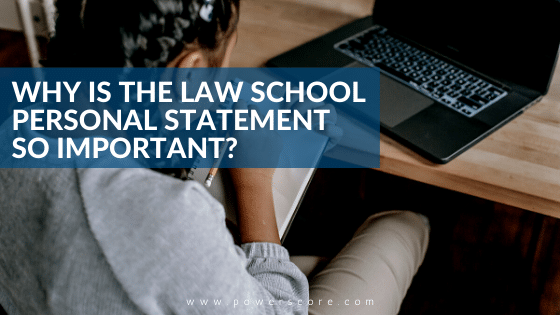It’s that time of the year. Everyone is scrambling to get their applications done and submitted before the deadline. And, of course, since the part of the application students struggle with the most is the personal statement, they’ve left it to the very end. Now is when we start getting stressed-out phone calls and emails: What should I write about? Does the statement really matter if I have great numbers? How long does the statement have to be?
Although it’s impossible to cover everything that a personal statement should do and convey in a single short blog post, we can give some pointers on the basics of what to do–and what not to do.
The Importance and Potential Slip-ups
So. Why is the law school application personal statement so important? And how do you not mess it up from the get-go? Schools place a premium on the personal statement because it’s the one thing on your application that deals with the essence of the law profession: writing. Law school admissions committees want the opportunity to examine your writing and determine the degree of efficacy with which you can create and develop logical ideas while also reaching out and connecting with an audience.
In addition, law schools are interested in knowing what you value personally, professionally, morally, and intellectually. The personal statement is the place to showcase that. It presents a “human” aspect to your law school application that can be found nowhere else. In certain situations, it can be the deciding factor between a denial or waitlist, or a waitlist and an acceptance. We can’t tell you how to write the perfect personal statement. Unfortunately, because the best personal statements are, well, personal, the choice of topic and how you’ll write it is all up to you. There is no one way to tell someone how to write a great personal statement. Everyone has a different writing style and story to tell.
However, there are a few rules you can follow that will ensure that you are at least keeping within what will make admissions officers happy.
Avoid Gimmicky Essays
Things like patterned paper, computer graphics, photos of you as a toddler, video essays, or statements written in the form of an LSAT logical reasoning question do nothing but attract the wrong kind of attention. The admissions committee wants to read a clear, well-written, well-thought-out statement that demonstrates you are a serious candidate for a JD from their school. They don’t want to have to squint at odd graphics, wonder why you had that haircut when you were two years old, or attempt to understand faux-LSAT gibberish. In other words: Just because Elle Woods submitted a video essay in Legally Blonde and got into Harvard Law, that doesn’t mean it’ll work for you.
Don’t Write a College Essay
Don’t write a two-paragraph, one-page, double-spaced essay. That’s less copy than most 30-second TV ads have, and how much do you really know about the product once they’re over? Instead, give the Admissions Committee something substantial to read and get to know you with. You can’t really get to know someone in 250 words or less. On the other hand, do not ramble on for 10 single-spaced, 8pt font pages. Respect your audience and show them that you understand how important their time is by writing a 2-3 page personal statement with default margins in 12pt font that can be read cohesively in a minimal amount of time.
Avoid Thesaurus-Speak
If you don’t know how to use a “big” or “fancy” word, or the way you have it in your essay sounds strange, take it out. A big vocabulary is only impressive when it is used correctly.
Grammar. Spelling. Punctuation.
These are a few of Admissions Committees’ favorite things.
Present Your Best Side
Don’t use the personal statement to gripe about something that you thought was bad or unfair. If you must, then also take the time to talk about how that negative experience allowed you to grow as a person and see things in a different perspective.
Don’t Regurgitate Your Résumé
The Admissions Committee has your résumé in front of them; they don’t need to see it again in a longer format. Use the personal statement to anecdotally show them the person who did all those things and had all those accomplishments.
Don’t Play It Safe
Write about something that touched you, something you can be passionate about, something that you know embodies you and what you believe in, even if it seems a little unorthodox. Don’t let a fear of being a little too “out there” keep you from wowing the Admissions Committee. It’s better to be “that guy who juggles fire” or “that girl with the 3 show dogs” than “that kid that wrote the essay about their European backpacking trip…no, not that one…or that one…not that one, either…”.
Of course, there are many more pointers we could give, but these are the most basic and important. Above all else, make sure you have someone else read and comment on your essay before you submit it, and take their feedback seriously. If they don’t “get” the essay, they think it’s dry or boring, or they raise their eyebrows and ask you if you’re serious, go back to the drawing board. It may take a few tries before you get a good essay but, believe me, after your LSAT and GPA, it’s the most important part of your application. Take your time and do it right.


Leave a Reply